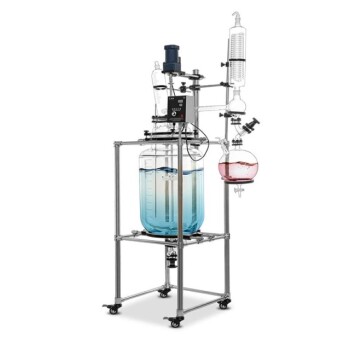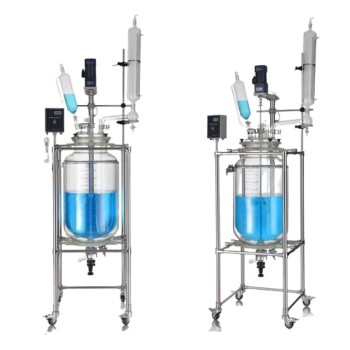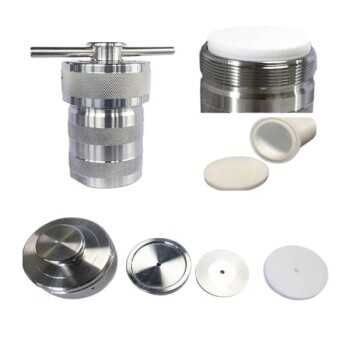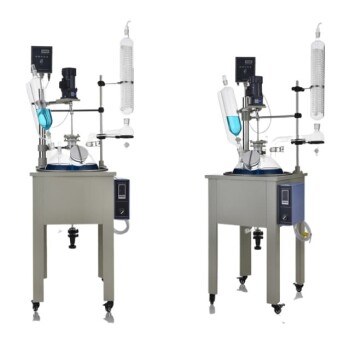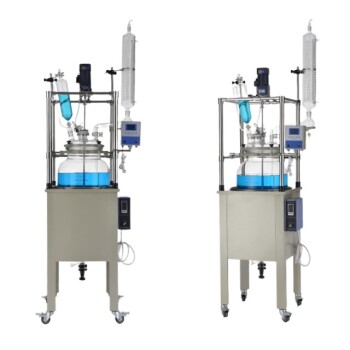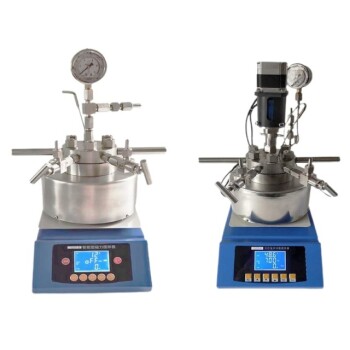Jacketed reactors are versatile equipment widely used in industries such as pharmaceuticals, chemicals, and food production. Their primary function is to provide precise temperature control during chemical reactions, which is critical for maintaining product quality and process efficiency. By circulating a heating or cooling medium (e.g., water or oil) through the reactor's jacket, these systems can manage exothermic reactions, reduce viscosity, and ensure consistent reaction conditions. They are particularly valuable in processes like distillation, crystallization, extraction, and API manufacturing, where temperature regulation is essential. Additionally, jacketed reactors are energy-efficient due to their insulation properties, making them ideal for both pilot-scale and large-scale production.
Key Points Explained:

-
Temperature Control in Chemical Reactions
- Jacketed reactors are designed to regulate the temperature of reactions by circulating a heating or cooling medium through the jacket surrounding the reactor vessel.
- This is particularly useful for exothermic reactions, where heat generation must be controlled to prevent runaway reactions or degradation of the product.
- Similarly, for endothermic reactions, the jacket can provide the necessary heat to maintain the desired reaction rate.
-
Applications in Various Industries
- Pharmaceuticals: Used in the synthesis of active pharmaceutical ingredients (APIs), crystallization, and post-processing to ensure high product purity and consistency.
- Chemical Processing: Essential for distillation, reflux reactions, and extractions, where precise temperature control is critical.
- Food Production: Employed in processes requiring controlled heating or cooling, such as emulsification or sterilization.
- Engine Oil Production: Helps manage the viscosity of oils and ensures consistent product quality.
-
Energy Efficiency and Insulation
- The jacket provides insulation, reducing heat loss or gain and minimizing the energy required to maintain reaction temperatures.
- This makes jacketed reactors more cost-effective and environmentally friendly compared to non-jacketed systems.
-
Versatility in Research and Production
- Jacketed reactors are used in both research and industrial settings.
- In research, they are ideal for biofuel production, electrochemistry, and the synthesis of new materials.
- In production, they serve as pilot plant equipment and large-scale reactors for fine chemical manufacturing.
-
Handling of Viscous Liquids
- The ability to control temperature allows jacketed reactors to reduce the viscosity of highly viscous liquids, making them easier to mix, pump, or process.
- This is particularly beneficial in industries like polymer production or oil refining.
-
Improved Product Quality
- Precise temperature control ensures consistent reaction conditions, leading to higher product yields and better quality.
- This is critical in industries like pharmaceuticals, where even minor deviations can affect the efficacy or safety of the final product.
-
Types of Jacketed Reactors
- Glass Jacketed Reactors: Ideal for processes requiring visibility, such as in pilot plants or research labs. They are also chemically resistant and easy to clean.
- Stainless Steel Jacketed Reactors: Commonly used in large-scale industrial applications due to their durability and ability to handle high pressures and temperatures.
-
Operational Flexibility
- Jacketed reactors can be customized with additional features like agitators, pressure controls, and advanced monitoring systems to suit specific process requirements.
- This flexibility makes them suitable for a wide range of applications, from small-scale experiments to full-scale production.
In summary, jacketed reactors are indispensable in industries requiring precise temperature control, energy efficiency, and versatility. Their ability to enhance product quality, handle complex reactions, and adapt to various applications makes them a cornerstone of modern chemical and pharmaceutical manufacturing.
Summary Table:
| Feature | Description |
|---|---|
| Temperature Control | Circulates heating/cooling medium for precise regulation of reaction conditions. |
| Applications | Pharmaceuticals, chemicals, food production, and engine oil manufacturing. |
| Energy Efficiency | Insulation reduces heat loss, making operations cost-effective and eco-friendly. |
| Versatility | Suitable for research, pilot-scale, and large-scale production. |
| Handling Viscous Liquids | Reduces viscosity for easier mixing, pumping, and processing. |
| Improved Product Quality | Ensures consistent reaction conditions for higher yields and better quality. |
| Types | Glass (visibility, chemical resistance) and stainless steel (durability). |
| Operational Flexibility | Customizable with agitators, pressure controls, and monitoring systems. |
Ready to enhance your production process? Contact us today to learn more about jacketed reactors!

